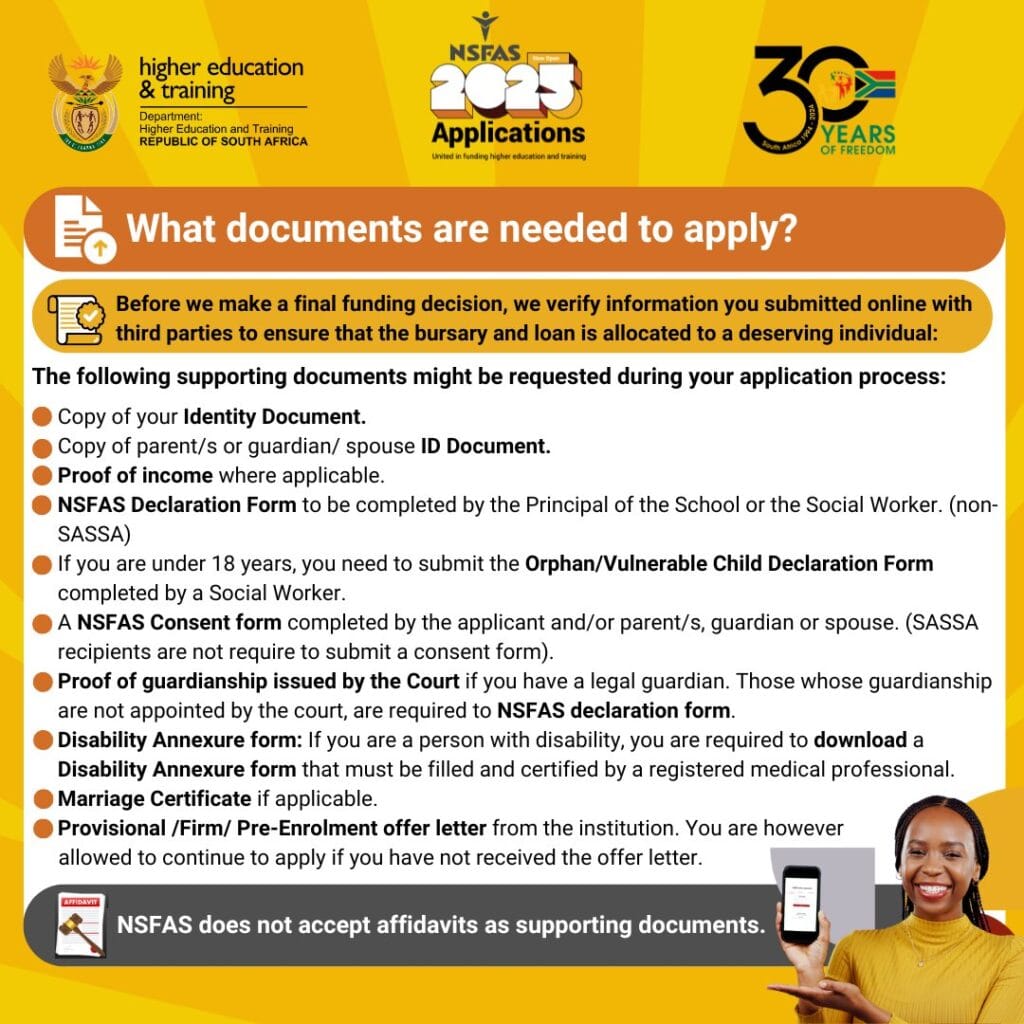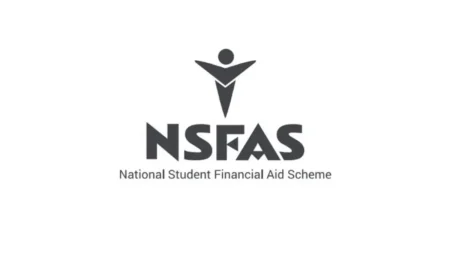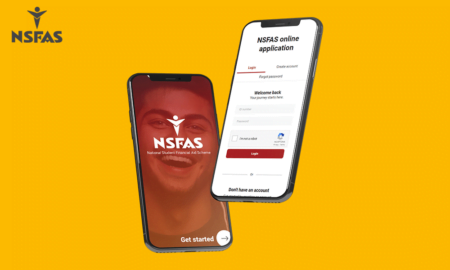When applying for the National Student Financial Aid Scheme (NSFAS), having the right NSFAS supporting documents is crucial for ensuring a successful application. NSFAS provides financial assistance to deserving students from disadvantaged backgrounds, making it easier for them to access higher education. However, the process of preparing and submitting the necessary documents can be confusing, especially with changing requirements.
One common mistake applicants make is submitting affidavits instead of official supporting documents. For the 2025 NSFAS application period, it is clearly stated that affidavits are not accepted as supporting documents.
This article will explain what types of documents are needed to replace affidavits and guide you through preparing a comprehensive NSFAS application.
The Importance of Supporting Documents
Supporting documents serve as proof of your personal, financial, and academic situation. They help NSFAS verify your eligibility for funding and ensure that the bursary goes to those who truly need it. Submitting incorrect or incomplete documents can result in delays or even rejection of your application.
With that in mind, let’s take a closer look at what supporting documents NSFAS requires and what you should submit instead of affidavits.
Why Affidavits are Not Accepted
Affidavits are sworn statements that are often used to verify information that cannot be substantiated with other documents. While they can be useful in certain legal situations, they do not provide the concrete proof that NSFAS requires for their verification processes. As a result, NSFAS has stated explicitly that affidavits are not acceptable as supporting documents for applications.
Instead of relying on affidavits, applicants must submit official documents that have been issued or certified by recognized institutions. This ensures the accuracy of the information provided and helps NSFAS maintain the integrity of its funding program.
List of Required NSFAS Supporting Documents for 2025
According to the 2025 NSFAS application guidelines, the following supporting documents must be submitted:
- Copy of Your Identity Document (ID)
A clear and legible copy of your South African ID is mandatory. If you are under the age of 18, you can use your birth certificate. - ID Document of Parent(s), Guardian, or Spouse
This is required if you are financially dependent on your parents, guardian, or spouse. The ID copies must be certified within the last three months. - Proof of Income
Provide the latest payslips, letter of employment, or a pension slip if your parent(s), guardian, or spouse is employed. If they are unemployed, a SASSA grant slip or a sworn statement from a community leader may be required. - NSFAS Declaration Form
This form is mandatory for non-SASSA recipients and must be filled out by a school principal or social worker. It helps verify your financial status. - Orphan/Vulnerable Child Declaration Form
If you are an orphan or classified as a vulnerable child, you must submit a form filled out and signed by a social worker. - Proof of Guardianship by the Court
If your legal guardianship was not established by a parent or close family member, provide an official letter or document issued by the court. - Disability Annexure Form
For applicants with disabilities, this form must be completed and certified by a registered medical professional to confirm your disability status. - Marriage Certificate (if applicable)
Submit a copy of your marriage certificate if you are married, as this will affect your financial assessment. - Provisional/Firm/Pre-Enrolment Offer Letter from Institution
While this is not required at the time of application, you will need to submit it once you have received an offer from a university or TVET college.
What to Submit Instead of Affidavits
If you are unable to obtain certain documents and are considering using an affidavit, consider these alternatives instead:
- Proof of Income:
Instead of submitting an affidavit stating that your parents or guardians are unemployed, provide a letter from a community leader, church leader, or social worker that confirms their status. For self-employed parents or guardians, submit a sworn statement from a commissioner of oaths along with any other available documentation, such as a bank statement showing zero deposits. - Proof of Guardianship:
If you do not have formal guardianship papers, a letter from the Department of Social Development or a court order will be required. Affidavits claiming guardianship will not be accepted. - Orphan/Vulnerable Child Status:
Obtain a declaration form completed by a social worker or a letter from the Department of Social Development confirming your status. This serves as official proof and is more reliable than an affidavit. - Academic Records or Certificates:
Submit certified copies of your school records, report cards, or matric certificate as proof of academic performance. An affidavit stating your grades or school attendance is not sufficient.
Step-by-Step Guide to Preparing Your NSFAS Supporting Documents
- Gather and Certify Your Documents:
Visit your local police station, post office, or commissioner of oaths to get your documents certified. Ensure that they are certified within the last three months. - Scan and Save Your Documents:
Make sure that each document is scanned clearly, without any blurring or cut-off text. Save each document separately in PDF format for easy uploading. - Organize Your Documents by Category:
Create separate folders on your computer or mobile device for each type of document: ID documents, proof of income, academic records, etc. This will make it easier to upload during the application process. - Check for Missing Information:
Review each document to ensure that all information is complete and accurate. Missing pages, unclear copies, or outdated certifications can cause your application to be rejected. - Upload Your Documents:
Log into your NSFAS account and upload the required documents. Double-check that you have uploaded the correct files for each category before submitting.
Common Mistakes to Avoid
- Submitting Affidavits Instead of Required Documents
As emphasized throughout this article, affidavits are not accepted by NSFAS. Avoid using them as replacements for official documents. - Providing Uncertified Copies
Always ensure your documents are certified by a commissioner of oaths within the last three months. Uncertified copies will be rejected. - Uploading Incomplete or Incorrect Documents
Double-check all uploaded files to make sure they are complete and legible. Submitting incomplete documents can lead to your application being declined.
Submitting the correct NSFAS supporting documents is a key part of ensuring your application is successful. By understanding what is required and avoiding the use of affidavits, you can increase your chances of receiving the funding you need to pursue your studies. If you have any questions or are unsure about the documentation, reach out to your school, a social worker, or NSFAS directly for guidance.











